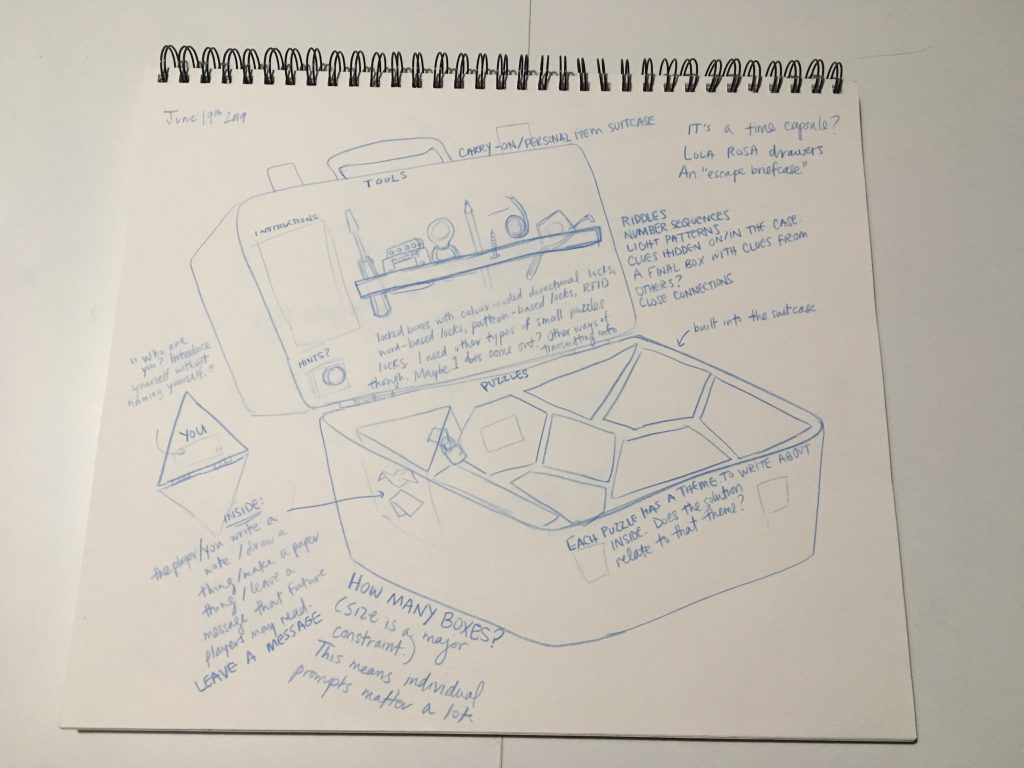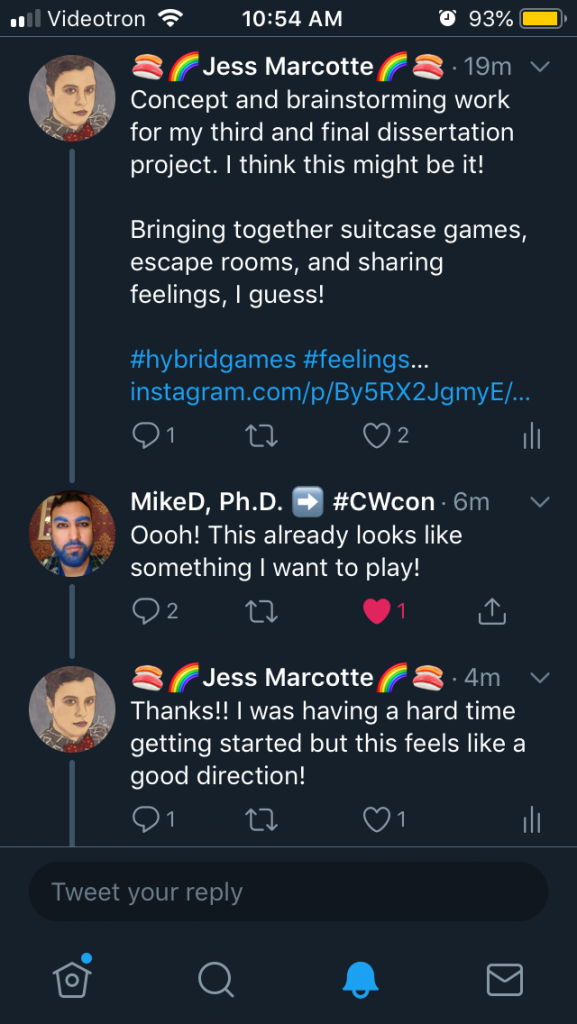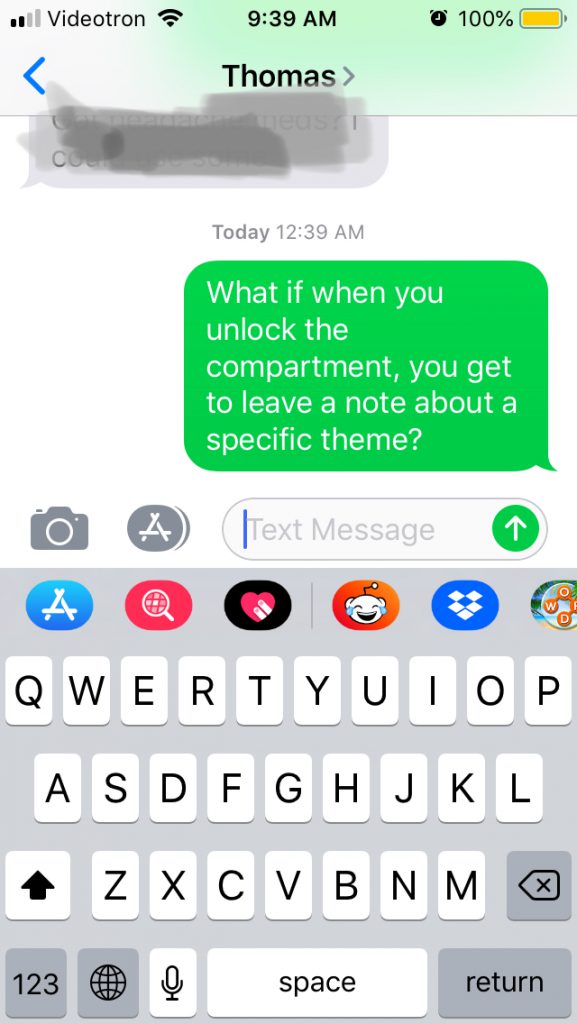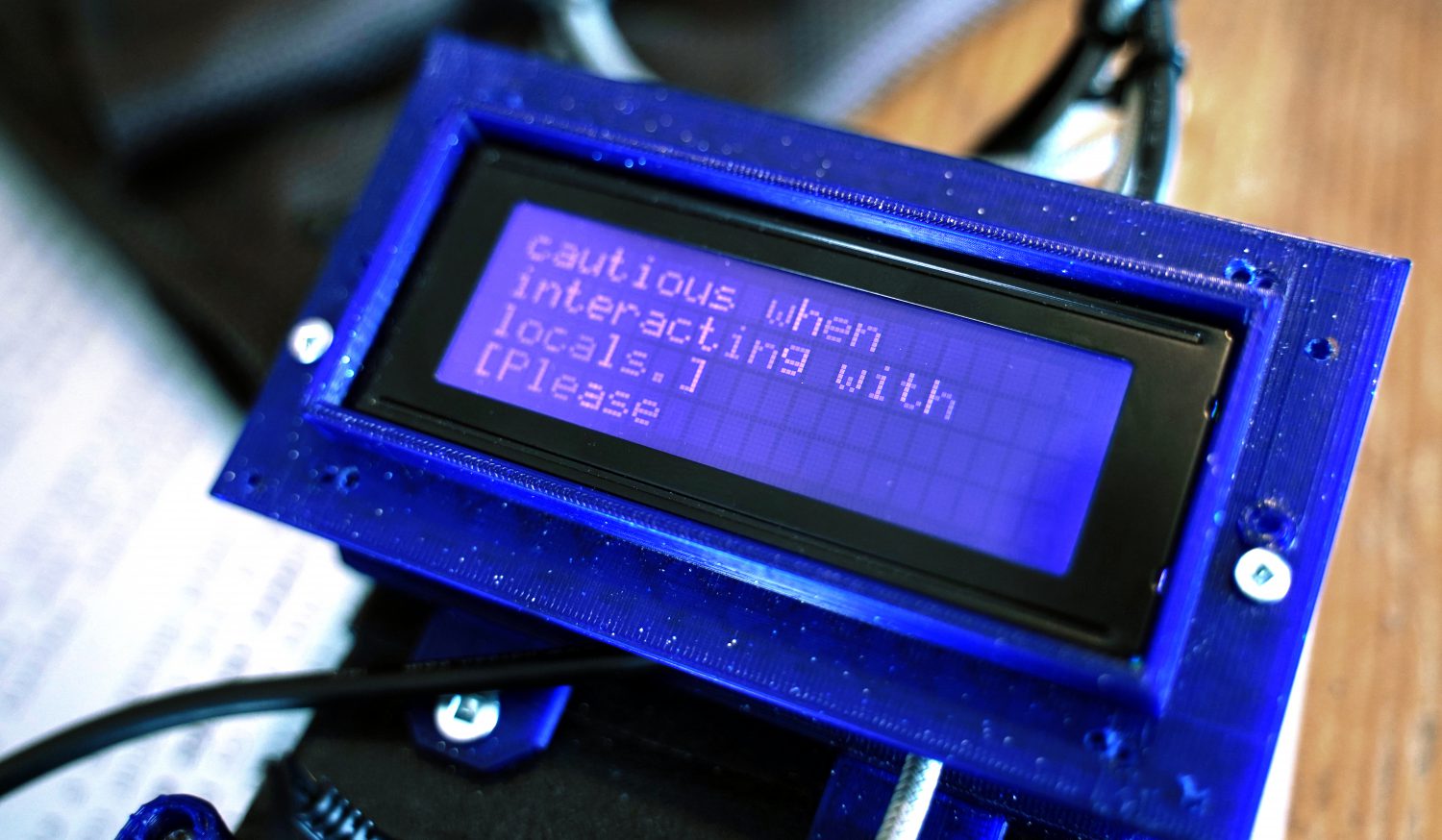Hi folks,
So, I just got back from CGSA (the Canadian Game Studies Association) in Vancouver, BC, which I followed up with some hiking and sightseeing on beautiful Vancouver Island. The conference was pretty excellent, and the past week has been extremely relaxing and good for me. (I’ll post my CGSA talk and slides eventually.)
Now, though, it’s time to get back to my dissertation work, and to be honest, I am a little worried — by now, I’m supposed to be three and a half months into my new project, but I’m not. As I’ve mentioned before, there are a lot of reasons for that. I lost the first month of project 02 to exhibiting and traveling in Europe followed by running last year’s QGCon. I lost December and January (months four and five) to burnout from the RCMP work that I was helping Tom with, as well as to getting ready to teach in January… And then, I needed two and a half or so extra months to finish TRACES.
I could have opted for a less-finished prototype, but I felt a strong connection to the project, and I really wanted to make it as “finished-for-now” as I could. I am very, very happy with the end-result of the project. But it took time.
That’s time that I didn’t use for Project 03, or for dissertation writing. Now, I know (and so do you, if you look back on this) that I have been writing this entire time, but I haven’t been writing formal chapters.
I’m happy that I did use my CGSA presentation to write a few thousand words about archival practices. I think it’s a good initial first go with some strong thoughts, and I did get some suggestions for who I should be reading/looking into from the audience, including: Dene Grigar from U of Washington/Vancouver, Wendy Hui Kyong Chun, Jennifer Douglas (who writes about the subjectivity of archivists and on documenting workspaces and personal libraries at the NYC Public Library)… And I was reminded of a few sources that I should definitely be citing, such as Donald Schon (inescapably awesome work), and Barr, Khaled and Lessard’s MDMA work (I don’t know if it’s formally published somewhere now?). Adrienne Shaw’s Encoding and Decoding Technology sounded liked something I’d be interested to read, as well as Kat Holmes’ Mismatch.
John Sakloske brought up questions of ephemerality that I didn’t agree with but will certainly have to address. Raph’s Delete Jam (happening tonight) also brings these questions up, philosophically and affectively.
All this is to say that I am not sure that I am on track to finish writing or to defend by May 2020. I will try to finish my next project in three months, but I don’t know that I will. From there, I have to write about 50 000 words, which, honestly, isn’t too bad, but I know that I have a lot more to say than that, and that this will all need editing. I also have a lot to analyze in terms of materials. I have to get many hours of audio transcribed in order to analyze it with grounded theory. But I think I will have to only include a sample of that in my dissertation as an appendix.
Right now, I haven’t been as in-touch with Rilla, my supervisor, as I would like. Since she’s on maternity leave and the work is still plugging along, I guess that’s okay, and we’ve already talked about what would happen if I didn’t finish on time (the answer is pretty well just to remember to save up a little money so that I can finish at the end). Money is a bit of a concern because Tom hasn’t yet found a full-time job (he’s doing some worthwhile part-time work in the meanwhile). My budget is in order but it depends on Tom being able to pay his half of the bills. He’s still also working on the various complaint files that he still has to have a part in.
So, I’m trying to figure out what this project is about. This morning, I was thinking about themes like connection/intimacy, as well as interpretation. I was thinking of electronic motion and vibration. They’re two areas that I haven’t done a lot with yet that my peers, like Ida and Squinky, have been doing neat stuff with. One idea that came to my mind as I was half-awake was a game where you have to interpret the motion of a digital/electronic device. More on this to come! One concern that I have is that I wanted to try out a game with clearer outcomes and win/lose conditions than the previous one, and this direction doesn’t seem to be going that way. I don’t want to rest on my laurels! Another concern is that working with the technologies that I did for TRACES involved a lot of trial and error and programmatic problem-solving that was more difficult and time-consuming than I anticipated, so I wonder whether it would be better to work with a technology that I already know.
More as it comes!



